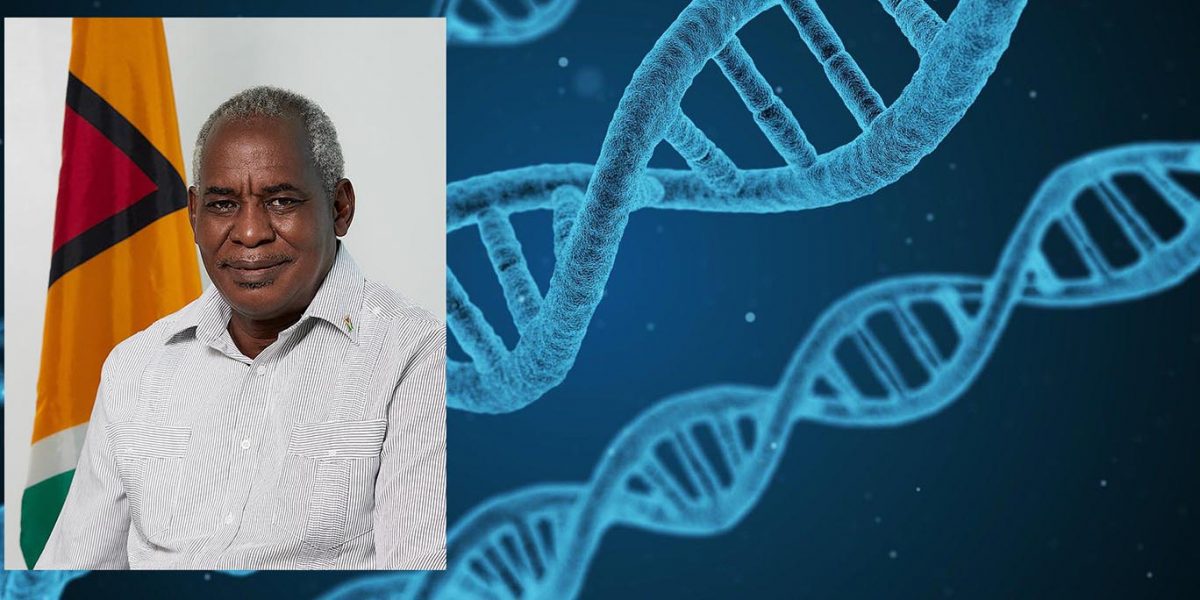The Guyana Police Force (GPF) may soon be legally empowered to collect DNA from any person taken into lawful custody in connection with a crime or offence for the purpose of identification.
According to the Police (Amendment) Bill, which was tabled in the House last Thursday “deoxyribonucleic acid (DNA) information” is to be added to the list of identifying information police officers can record under Section 25 of the Police Act.
Currently, Section 25 provides that it is lawful for any member of the force to take and record for the purpose of identification any measurement, photographs and finger-print impression of all persons who may from time to time be in lawful custody.
There is an additional provision that if the identifying information relates to a person who has not previously been convicted of any criminal offence and that person is discharged or acquitted, all records are destroyed or handed over to that person.
In Guyana a person is deemed to be in lawful custody where that person is lawfully detained at any police station in connection with the commission of any crime or offence no matter the severity.
Under the proposed amendment, there is no requirement that the DNA be relevant to the investigation of the crime or offence for which the individual is detained. “The effect of this amendment is that in addition to measurements, photo-graphs and fingerprint impressions, a member of the Force can take and record DNA information of a person in lawful custody for the purpose of identification,” the explanatory memorandum for the bill states.
Reached for comment on the rationale behind the amendment, Minister of Home Affairs Robeson Benn, in whose name the bill was laid, said, “You’ll get the explanation in the Parliament.”
The proposed amendment may generate concern and scrutiny over the absence of provisions surrounding the collection of samples from persons taken into custody as is the case in several other jurisdictions.
If passed, the amendment will allow the GPF to collect DNA from any person detained in connection with any crime or offence. As defined under the Prevention of Crimes Act, this includes every-thing from murder to any act or omission which is not a crime but is punish-able either on summary conviction or on indictment.
There is also no requirement that the collection of DNA be relevant to the investigation or be required to prove the involvement of the person detain-ed.
In Trinidad and Tobago the Deoxyribonucleic acid (DNA) Act allows for a non-intimate sample, such as a cheek swab, to be taken from a person in several instances, including if they are charged with an offence, if a stain derived from a crime scene exists and there are reasonable grounds for suspecting that that person was involved in the offence and for believing that forensic DNA analysis could confirm or disprove such suspicion, or if they have been convicted of an offence and are serving a term of imprisonment.
In Jamaica, Section 15 of the DNA Evidence Act also requires either informed consent of the detainee or a Court Order before an intimate sample is acquired. In this case, a non-intimate sample can be obtained without consent only if there is reasonable grounds for suspecting the person committed the offence and the sample collected can be used to confirm or disprove this suspicion.
In the United States, the American Bar Association (ABA) advises that a DNA sample should not be collected from the body of a person without that person’s consent, unless authorized by a search warrant or by a judicial order. It further notes that if the person from whom the sample is to be collected is suspected of committing a crime, an order should be issued only upon an application demonstrating probable cause that a serious crime has been committed and that the sample is collected by a physically noninvasive means following reasonable suspicion that the person committed the crime.
Samples collected by physically invasive means require probable cause that the person committed the crime charged and proof that the sample will assist in determining whether the person committed the crime.
The Criminal Investigations (Bodily Samples) Act of New Zealand also specifies that DNA samples can only be obtained either voluntarily or via a “compulsion order” from the court. The Community Law organisation further explains that in that country the police cannot collect DNA when investigating less serious offences, such as common assault or wilful damage.
This would not be the case in Guyana under the amended law.









